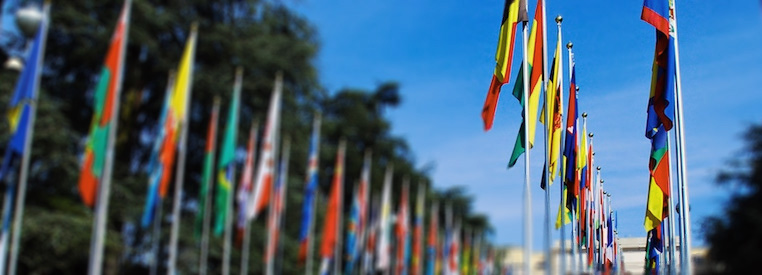China| Liu Xiaobo case indicative of harsh sentencing trend for freedom of expression
Sarah Cook, Asia Research Analyst and Assistant Editor of Freedom House, writes: “When Chinese democracy activist and author Liu Xiaobo was sentenced to 11 years in prison last week, many around the world appeared stunned by the length of his sentence and absence of due process rights. Such harsh punishment for offering rational, constructive criticism of the government seems more compatible with Soviet times or Burma’s ruling junta than the modernized economic world power that China has become.
Unfortunately, Liu’s sentencing – in all its injustice and absurdity – is symptomatic of more systemic problems and politicization of the Chinese legal system, particularly in so-called “sensitive” cases. Moreover, in the past two years, signs have emerged that the situation may be getting worse, not better.
Over the past three decades, the Chinese legal system has been built from scratch – thousands of laws have been passed, judges trained, and state-of-the art courthouses built. Under this external facade of modernity, however, lies a system that still falls far short of the rule of law.
The Chinese Communist Party exercises significant influence over the judicial system via its political-legal committees and power to appoint judges, most of whom are party members and subject to its disciplinary procedures. Whether because of direct orders from the local party committee or fear of reprisals from other state actors, judges’ autonomy to decide cases based on the law and evidence remains circumscribed.
In recent years, greater space has been granted in commercial cases, disputes between private individuals, and some administrative decisions. Nevertheless, judicial independence remains dramatically curtailed in socio-economic and politically sensitive cases, where lawsuits may be automatically rejected and verdicts are routinely predetermined. Hence the need for no more than a few minutes or hours per trial. [...]
More here on JURIST.
U.S.| Airport scanners: privacy vs. security
From ABC News: Civil liberties groups and privacy advocates are urging federal officials to slow down the rush to buy more full body airport scanners until there is more proof that the machines would disrupt a future terror attack.
Nineteen airports already have 40 of the machines in use, 150 more are scheduled to be installed this year, and the Transportation Security Administration recently announced it has secured funding for an additional 300.
At the same time, officials in Great Britain and the Netherlands who had been slow to introduce the machines now say passengers on transatlantic flights will be required to pass through them.
Mike German, a former FBI agent who now serves as policy counsel for the American Civil Liberties Union, said that while longstanding privacy concerns have not gone away, the real concern should be whether the machines will do anything to improve the safety of the traveling public.
“The question should be not whether it’s worth the privacy invasion, but whether it’s worth investing in technology that the terrorists are already showing can be defeated,” German told ABC News. “There is no reason to sacrifice our liberty or privacy if there is no security gain.” [...]
More here.
U.S.| Restriction on visas to HIV-positive foreigners lifted
From CNN: Foreign nationals who are HIV-positive will find it easier starting Monday to visit the United States.
The Department of Health and Human Services and the Centers for Disease Control and Prevention removed HIV infection from the list of diseases that prevent non-U.S. citizens from entering the country.
HIV is the human immunodeficiency virus — the virus that causes AIDS.
Advocates for HIV-positive people said the new policy was long overdue, calling it “a significant step forward for the United States.” [...]
U.S. laws and regulations enacted since 1952 have made persons “who were afflicted with any dangerous contagious disease” ineligible to receive a visa to enter the country. People infected with HIV have been restricted since 1987, when Congress directed the U.S. Department of Health and Human Services to add HIV to its list of diseases of public health significance. [...]
More here.
Honduras: OAS delegation probes human rights abuses
From AFP:
A delegation from the Organization of American States arrived to look into possible human rights violations in Honduras since the June 28 coup that overthrew President Manuel Zelaya.
The three-member delegation, whose identities are kept secret for security reasons, will for two weeks meet with top officials of interim leader Roberto Micheletti’s administration and those opposing the coup, a human rights official said.
Micheletti’s de-facto regime recently suspended civil liberties in the country to stem anti-coup demonstrations and unrest that it admits have left four dead since the coup. The regime also closed Radio Globo and TV Channel 36, both opposition outlets.
The Committee for Missing Prisoners in Honduras, however, puts the number killed in the same period at 12, while Human Rights Defense Committee president Andres Pavon told AFP that another 25 people were wounded by military gunfire during the protests. [...]
More here.
Honduras Crackdown Drawing International Condmenation
The international community sounds alarms over the Honduran crackdown on freedoms. Read more
